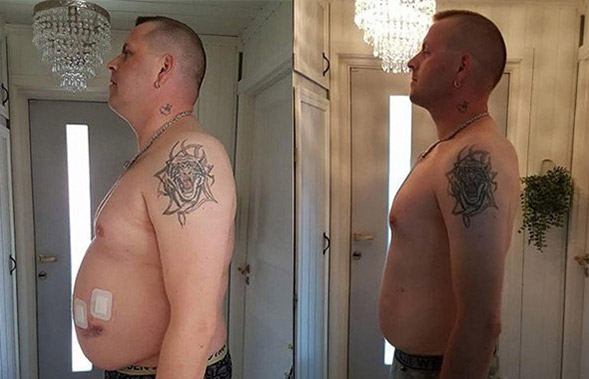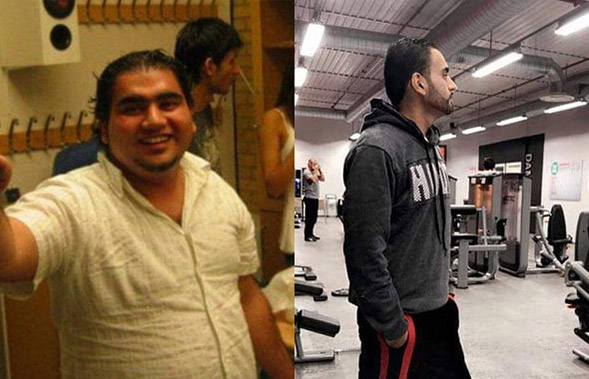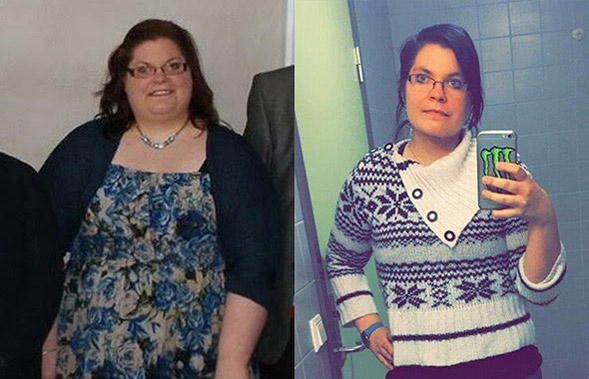Book Free Consultation
| Gastric Balloon | BMI 27+ |
| Gastric Sleeve | BMI 30+ |
| Gastric Bypass | BMI 35+ |
Choose the procedure that suits you best
Weight: Kg | Height: cm |
10 Reasons to choose us
BMI Range
Enter your body profile details to calculate the result.
Gastric bypass surgery and gastric bypass diet recipes have become perhaps the most popular methods available for helping severely overweight and obese people regain control of their lives and set themselves back on a path toward better overall health.
Gastric bypass entails stapling off the majority of the stomach, creating a new smaller stomach “pouch” and then creating an intestinal bypass that connects directly to that pouch. As a result the patient is no longer able to eat as much, the stomach no longer processes nutrients as effectively and the patient loses weight; as much as 50 to 70 percent of their entire body weight. It’s a drastic procedure and for some it can literally be the difference between living a happy, useful life and being isolated and sedentary as their health gradually deteriorates.
Foods to Live By: Gastric Bypass Diet Recipes
In order to get the most out of the gastric bypass procedure it’s recommended that patients adapt a bypass-friendly diet. Adhering to the principles behind such a regime can greatly increase the odds of being able to sustain your weight loss over the long term. The gastric bypass diet has several goals:
– To help you lose weight and keep from regaining it by building healthy eating habits.
– To minimize side effects and any complications from surgery.
– To help you get in the habit of eating smaller quantities of food.
– To let your stomach heal properly in the aftermath of surgery.
– To avoid stretching out the new stomach pouch by filling it with the wrong types of food.
Food for gastric bypass patients is divided up into 2 main segments: pre-surgery foods and post-surgery foods. The pre-surgery aspect of the diet is intended to get set you on the road toward leaving your old eating habits behind while at the same time preparing your body to face the challenges that lie ahead.
The Pre Bariatric Surgery Diet
Most of us spend a great deal of time building and then reinforcing bad eating habits. But if you want gastric bypass surgery to work that’s going to have to change. Contrary to some people’s beliefs this type of surgery is not a stand-alone event. That is, the surgery alone, as radical as it is, is not going to be enough to provide long term sustainable weight loss and good health. The surgery will take off the pounds but it’s going to be up to you to keep them off and to provide your body the nutrients it needs to stay healthy in the process. You do that primarily through your pre bariatric surgery diet choices.
Those dietary choices start in the weeks leading up to the surgery. While it’s not mandatory to follow the pre surgery diet guidelines we’re about to lay out it is strongly advised that you do. That’s because they’ll provide you the best chance of having a successful surgery and emerging from it ready to move into the next dietary phase without skipping a beat. The pre op diet typically includes the following elements:
– Sugar-free beverages only. No buts.
– No carbonated beverages or beverages that contain caffeine.
– Soup broth only. No solid pieces of meat or vegetables allowed.
– Cream of wheat thinned to near watery consistency.
– Freshly made vegetable juice or moderate amounts of V8 are okay.
– Protein meal replacement shakes will be the foundation component.
– 1 or 2 servings of lean meat per day if approved by your surgeon.
You should wait at least 30 minutes after eating to drink any beverages and those should be drank slowly. Your typical daily pre op diet plan then will alternate 3 or 4 protein meal replacement shakes per day with individual 8 ounce servings of water, soup broth or skim milk during the hours in between shakes. It may seem a bit harsh and perhaps it is if you’re used to eating whatever you want whenever you want but it’s necessary to instill some discipline in your eating habits and the sooner you start the better off you’ll be.
The following are some popular high protein meal replacement shakes for your pre bariatric surgery diet:
– Isopure.
– Unjury.
You should also discuss any medications you are taking in the lead up to gastric bypass surgery as your doctor may want you to discontinue use of certain ones. This includes NSAIDs, birth control, steroids and more. Also, smoking may cause complications in the aftermath of gastric surgery but it may be inadvisable to quit cold turkey in the week leading up to the operation as it may prompt you to seek out snacks to fill the void. A better course of action is to cut back to just a couple of cigarettes per day before entering the hospital, having none while in hospital and then not going back to smoking once you leave hospital after surgery.
The Post Bariatric Surgery Diet
In most cases the post bariatric surgery diet is designed to ease you back toward solid foods while providing the nutrients you need and reinforcing the notion, begun during the pre op diet phase, of eating smaller healthier meals. A phased approach is typically used wherein you move from strictly liquids in the immediate aftermath of surgery, to pureed foods after several days of liquids to soft foods and then finally back to solid foods. In most cases the transition to eating regular solid foods takes about 3 months. Here are the different phases laid out in more detail:
Immediate Aftermath of Surgery: Liquids Only
In the day or two immediately following surgery you shouldn’t drink anything but clear liquids. Your surgeon will insist on it and the nutritionist will make sure you adhere to this rule. Make sure to sip these liquids slowly, never gulping, and limit your intake to 2 or 3 ounces at a time, max. If your body has demonstrated the ability to handle clear liquids you can slowly add other liquids such as skim milk, soup broth and unsweetened fruit juices.
3 Days to 3 Weeks after Surgery: Pureed Foods
After confining yourself to liquids only for a few days you’ll be ready to graduate to pureed foods, provided the liquids presented no problems for you. The foods you eat during this phase of your new dietary regime will have the consistency of a thick soup without any solid pieces of meat or vegetables present. During this phase you are training your redesigned digestive system to accept food once again so patience is crucial. Don’t ignore your doctor’s warning and go for the solid food too quick. You will regret it if you do.
There are some post op bariatric surgery diet foods such as beans, fish, eggs, cottage cheese, lean ground meats, and soft cooked vegetables that puree better than others and also have the nutritional value you’re after. Feel free to mix them with water, skim milk or soup broth as well. We mentioned this earlier but we’ll say it again: always wait at least 30 minutes after eating your pureed foods to drink anything. Also, avoid most dairy products as well as spicy foods during this period.
4 to 8 Weeks after Surgery: Soft Foods
After several weeks of training your new stomach to accept pureed food it will be time to move up to soft foods, provided pureed food presented no problems. It’s important that you don’t try and push the envelope here and mix in solid foods just yet. Patience will be the key to long term success so stick with the soft foods at this point. Soft foods that are typically recommended for people recovering from gastric bypass surgery include lean ground meats, soft fresh fruit without seeds or skin and skinned, well cooked vegetables.
8 Weeks and Beyond: Solid Foods
Barring any complications after a couple of months you’ll be ready to reintroduce solid food to your post bariatric surgery diet. Do so in a transitional way however. That is, don’t suddenly discard soft foods for an exclusive diet of solid foods. At around 8 weeks start with one portion of solid food per day and over the course of a few weeks gradually increase the amount of solid food you eat until you arrive at a place where your digestive system is completely accepting of them once again. Even at this stage in your recovery however there will be a number of foods you should avoid at all costs. Failing to do so could result in some very uncomfortable GI distress that may include vomiting, cramps and severe pain. The foods you should avoid are:
– Popcorn.
– Dried fruit.
– Any type of nuts or seeds.
– Granola or trail mix.
– Fibrous vegetables like celery or corn.
– Any meat with gristle.
– Any type of fried or greasy food.
– Bread.
In time you may be able to add some of these to your diet but at this still early stage of your new life you should avoid them at all cost.
Your New Healthier Diet
After several months of incrementally working your way back to solid foods you’ll be ready to start partaking of your new, healthier diet on a regular basis. Even as you do however there will be a number of guidelines you’ll need to abide by in order to ensure this new eating regime becomes second nature and not just something you do when other people are watching. These new guidelines are:
– Continue to eat and drink slowly – Early on in the gastric bypass diet you learned about the importance of eating and drinking slowly. This is not something you should abandon once your stomach has reacquainted itself with solid foods. That’s because due to the new configuration of your digestive system you’ll be susceptible to a phenomenon known as “dumping syndrome”. Dumping syndrome is when foods and liquids move too quickly between your stomach and small intestine. Nausea, dizziness and vomiting may be the result and perhaps diarrhea as well. Dumping can be avoided by eating and drinking slowly and avoiding fatty foods and sugar.
– Drink liquids between meals – You’ll need to drink anywhere from 48 to 64 ounces of fluids every day to avoid dehydration. At the same time however you’ll need to wait at least 30 minutes after you eat because if your new smaller stomach is full of liquids at dinner time when it should be full of food you’re not going to get the nutrients you need. Avoiding liquids at dinner time also helps prevent dumping syndrome.
– Eat small meals – This does not mean eat a lot of small meals it means eating the regular 3 meals a day and making sure they are each small. You’re going to want to avoid feeling full and instead strive for feeling satiated. That means eat until the feelings of hunger are gone, not until you’re so full you couldn’t eat another bite, even if you tried.
– Always chew thoroughly – Your mom and dad were always on you about chewing your food thoroughly when you were a kid and you’ll need to heed their advice now more than ever. The opening on your new intestinal bypass is pretty small and could become blocked by large pieces of food. Therefore you’re going to have to make sure you chew all your food thoroughly like your parents would want you to after bariatric surgery in order to avoid problems.
– Avoid sugar and fatty foods – Fried foods and sugar are two foods you can’t eat after gastric bypass surgery. You can test the waters if you want to but you won’t find anything there except indigestion or worse. So stay away from the fried chicken as delicious as it might be and learn to find the flavour in less dangerous foods. As for sugar, make sure to always drink sugar free beverages, take a pass on the chocolate cake and remember that lactose is really a kind of milk sugar and should be avoided.
– Embrace high-protein foods – High protein foods will help you heal quicker and better in the aftermath of your surgery but don’t abandon them once you start feeling better. Instead incorporate high protein, low fat foods into your regular diet in the form of lean meats, fish and beans. Low fat cottage cheese, yogurts and cheese can also be an excellent source of protein but should be consumed only in moderation.
– Add new items to your diet cautiously – The smartest way to proceed when it comes to trying new foods is to use an abundance of caution as some foods may cause pain and nausea. Rather than fixing a meal composed entirely of things you haven’t previously eaten in your post-surgery life add one new thing at a time so if it doesn’t work you have plenty of other food to eat.
– Take your vitamins – This is probably the most important thing to remember after bariatric surgery because your new stomach setup simply won’t be able to glean enough nutrients from the food you eat to keep you healthy. It will need help. That help will be the vitamin and mineral supplements your doctor recommends as part of your diet plan after gastric bypass surgery. Failing to take vitamins post gastric bypass in the prescribed amounts will lead to very real and serious complications.
The long term success of your weight loss efforts that began with gastric bypass surgery will depend on your willingness to incorporate the necessary gastric surgery diet changes outlined above.
Bariatric Surgery Diet Recipes to Power Your New Life
Now that you have a better idea of the principles of the gastric bypass diet after surgery let’s look at a few bariatric food ideas you may want to make some of your favourite foods to eat after stomach surgery. Do yourself a favour and have some friends over to enjoy them with you.
BLACK BEAN AND CORN SALAD
Ingredients
– 32 ounces black beans
– 1 cup whole kernel corn
– 2 tablespoons minced red onion
– ¼ cup chopped parsley
– 2 tablespoons of olive oil
– 1 teaspoon freshly squeezed lemon juice (no seeds)
– ¼ cup balsamic vinegar
– 1 teaspoon honey
– 1 teaspoon minced garlic
– ¼ teaspoon black pepper
– Pinch of salt
Directions
– Mix the corn, black beans, onion and parsley together in a large mixing bowl.
– Combine the vinegar, lemon juice, olive oil, garlic, honey, salt and pepper together and whisk.
– Pour the mixture over the black beans and corn.
– Marinade for 30 minutes and serve.
Serves 6 so call your friends!
TUNA AND APPLE SANDWICHES
– 1 can tuna in water, drained
– 1 teaspoon mustard
– ¼ cup low-fat vanilla yogurt
– ½ teaspoon of honey
– 3 lettuce leaves
– 6 slices of whole wheat bread
– 1 apple
Directions
– Wash, peel and chop the apple into small pieces.
– Combine the apple pieces, tuna, honey, yogurt and mustard in a bowl and stir well.
– Split the mixture among 3 slices of bread.
– Top each sandwich with lettuce and cover with the remaining bread slices.
– Enjoy with 2 of your friends!
Serves 3
NOT REALLY FRIED RICE
Ingredients
– 3 ounces skinless, boneless chicken breast.
– ¼ cup chopped carrot (skinned)
– ½ cup minced green onion
– 1 teaspoon mustard
– 1 teaspoon sesame oil
– 1 teaspoon chili paste
– 2 tablespoons soy sauce (low sodium)
– ¾ cup cooked brown rice
– ¼ cup frozen peas
– 1 clove of minced garlic
– 2 large egg whites
– Olive oil spray
– Black pepper to taste
Directions
– Cut the skinless, boneless chicken breast into small cubes and season with the black pepper.
– Combine soy sauce, chili paste, mustard and sesame oil then set aside.
– Mist a large wok with cooking spray and place over medium high heat.
– Place chicken cubes in the hot wok stirring occasionally until browned and cooked through.
– Remove chicken to a plate and cover.
– Mist the wok lightly again and return to medium high heat.
– Toss in the green onions, garlic and chopped carrots.
– Stir frequently for 2 to 3 minutes.
– Add the cooked brown rice and peas.
– Cook for an additional 2 minutes or until mixture is thoroughly hot.
– Add the egg whites and stir continuously until cooked.
– Toss the chicken back into the wok on top of the rice combination.
– Add the soy sauce combination you set aside earlier.
– Stir continuously for 1 minute then serve immediately.
Serves 2
STUFFED CAJUN CHICKEN
Ingredients
– 4 skinless boneless chicken breasts
– 3 ounces of shredded reduced fat pepper jack cheese
– 1 cup of fresh spinach cooked and drained
– 2 tablespoons Cajun seasonings (premixed)
– 2 tablespoons extra virgin olive oil
– 1 tablespoon bread crumbs
– 1 pinch salt
– ¼ teaspoon black pepper
– Toothpicks
Directions
– Preheat oven to 350 degrees.
– Flatten the boneless chicken breast down to ¼ inch.
– Combine the cheese, spinach, salt and pepper in a medium bowl.
– Combine the breadcrumbs and Cajun seasoning in a small bowl.
– Lay the chicken breasts out flat and place ¼ of the spinach mixture onto each.
– Roll each chicken breast up and secure with toothpicks.
– Brush each rolled up chicken breast with olive oil.
– Sprinkle the Cajun seasoning evenly over the rolled up chicken.
– Place the chicken breasts seam side up onto a baking sheet.
– Bake for 35 to 40 minutes or until chicken is cooked throughout.
– Remember to remove toothpicks before serving.
– Slice into medallions or serve whole.
– Enjoy with friends.
Don’t be afraid to try new foods to eat after stomach surgery just be sure to avoid grease and sugar and remember to eat slowly, chew everything thoroughly, wait until after you eat to drink any beverages and eat until you’re no longer hungry, not until you’re full.
Conclusion
Gastric bypass surgery is often referred to as the gold standard of weight loss surgery because it is one of the most effective – if not the most effective – way for severely overweight individuals to regain control of their weight situation. Surgery alone however will not be enough to deliver the long term sustainable weight loss you seek. You’ll need to buttress your efforts with fundamental dietary changes and gastric bypass diet recipes are designed to provide you the nutrition you need while avoiding the harmful sugars and fats that you don’t. You’ll want to make sure you reinforce your dietary efforts with regular exercise and of course, don’t forget to take all the supplemental vitamins and minerals your doctor prescribes.


























 I am a 26 year old girl from Trondheim. Throughout my life, I’ve struggled with extra weight/being obese. It’s something that has affected me both physically and psychologically.
I am a 26 year old girl from Trondheim. Throughout my life, I’ve struggled with extra weight/being obese. It’s something that has affected me both physically and psychologically. 




